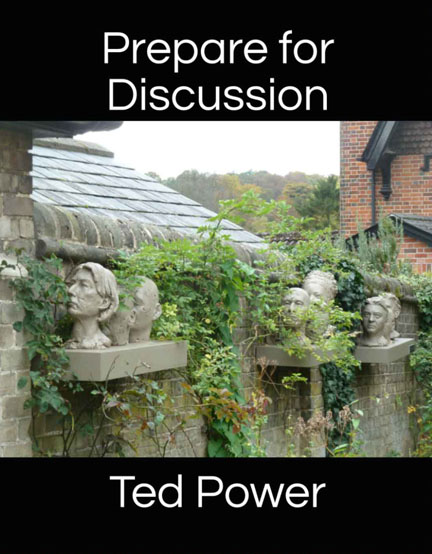
|
HOME |
Prepare for Discussion |
Extend Your Discussion |
read aloud in pairs
A: What do you think is the problem between the English and the Americans?
B: That's a very interesting question, because both nationalities share a common
language and are usually on the same side in war-time, yet they rarely speak
well of one another on a personal level.
A: Are we talking about a struggle for superiority?
B: Yes, but we measure our superiority in different ways. Ours is cultural and
historical. We believe we're more civilised. We're the country of Shakespeare and
the industrial revolution. Americans visit England in search of culture and history.
A: So in what ways are they superior?
B: Well, obviously in size. Everything's bigger - their country, their salaries,
their roads, their companies. Theirs is the land of MacDonald's, Coca Cola,
Microsoft and IBM. They enjoy telling us that they're the best.
A: And are they right?
B: Yes, if you measure success purely in dollars, but there're two points here.
Firstly, many English people actually believe that "Small is Beautiful". They
prefer countries where you don't get mugged in parks and subways.
A: What's the other point?
B: I was coming to that. It's the difference in character. Maybe you think you're
the best in the world, but you don't go shouting about it from the rooftops. Americans
lack our modesty and reserve. They're probably warmer and more friendly, but
they're often very loud and extrovert to go with it.
A: So you prefer the British character?
B: Not entirely. We tend to be rather oblique in our conversation. When
Americans speak, you can take them literally, but when English people speak you
have to read between the lines.
Dialogues are used in a number of ways. See The use of dialogues in language teaching in the English language teaching section of this website. However, both Prepare for Discussion and Extend Your Discussion use dialogues for role play in pairs (speakers A and B often have opposing views) and to contextualise the colloquial expressions found in the language of discussion. In Prepare for Discussion I key these colloquial expressions into the texts in italic print to draw attention to them. There is also an appendix containing extracts from the dialogues where the colloquial expressions occur. This offers a functional analysis of discussion techniques. These have been sorted into ten sections, most of which have sub-sections. The main sections are:
1. Asking someone for their opinion about a topic
2. Delaying strategies
3. Presenting a number of arguments
4. Giving your opinion about a topic
5. Agreeing
6. Disagreeing
7. Countering
8. Logical argument
9. Clarification
10. Expressing solutions and alternatives
The main challenges when using the appendix are (1) to match the extract involving the discussion technique with the topic from which the extract has been lifted, and (2) to reproduce the discussion technique in a context of the student's own creation.
| UK | US | DE | FR | ES | IT | NL | PL | SE | JP | CA | AU |
This book contains 28 dialogues on the following topics: alternative beliefs, animal welfare, the arts, crime and punishment, cultural differences, economics, education, environment, fashion, health, holidays, language learning, male & female roles, marriage, the media, political systems, religion, rich world : poor world, science and technology, society, sport, traditions, transport, travel, violence, work and youth & old age.
There is also an appendix containing extracts from the 28 dialogues in which the colloquial expressions used in discussion occur. This offers functional analysis mand further practice.
The material should prove especially useful to learners intending to study in UK universities where they would be expected to participate in discussions covering a wide range of themes.
| UK | US | DE | FR | ES | IT | NL | PL | SE | JP | CA | AU |
This book contains 14 dialogues on the following topics: art versus graffiti, climate change, community events, controlled parking zones, cost of living crisis, dogs, homes or open spaces, local history, neighbourhood disputes, the planning system, policing, refuse & recycling, residents associations and wildlife gardening.
The material is intended for learners of English at the upper-intermediate level and above who wish to improve their participation and performance in discussion of topics relevant to living in UK towns and cities.
Please take the links below for examples of the exercise types you will find in the books as well as my thoughts on the value of these exercises in teaching discussion